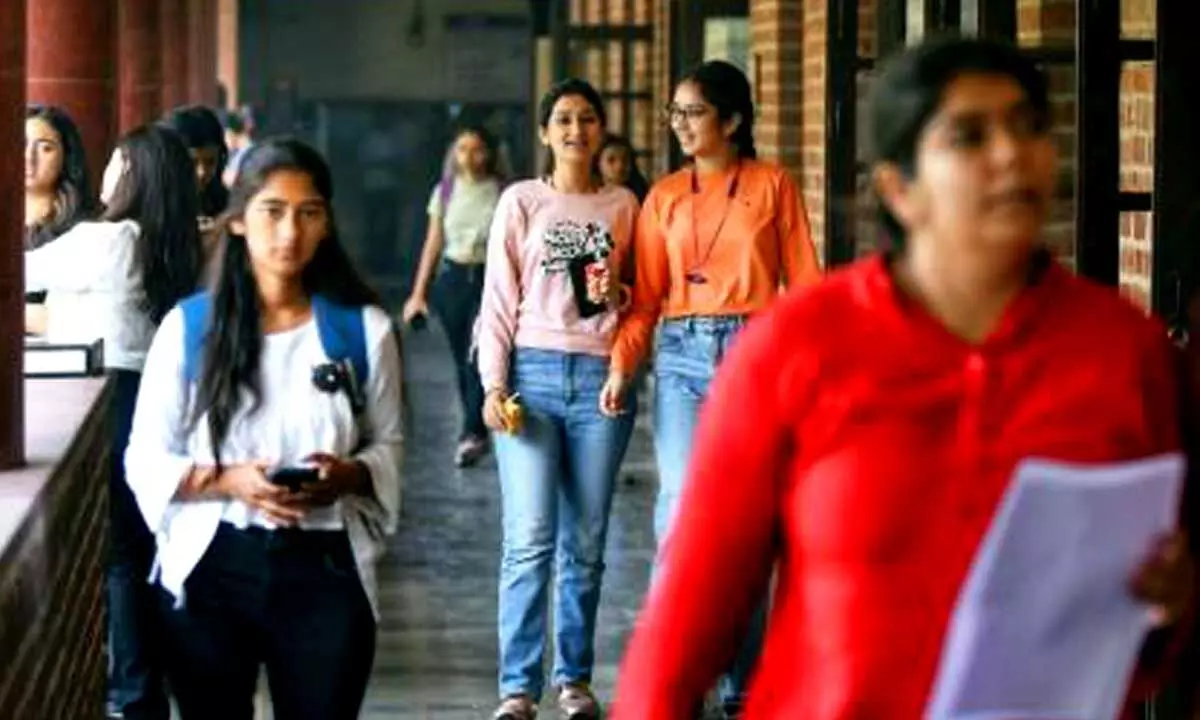US-bound students advised to be careful what they post online

Students planning to go to the United States for higher education should be careful about what they post on social media or what they communicate with others, say educational consultants.
Hyderabad: Students planning to go to the United States for higher education should be careful about what they post on social media or what they communicate with others, say educational consultants.
The students who discuss job opportunities with friends, relatives or others come under the scanner of US authorities.
A few days ago as many as 21 Telugu students were deported from the United States, sending concern among the Indian community.
The students who arrived from various parts of Andhra Pradesh and Telangana were deported by the Customs and Border Protection (CBP) for violating immigration norms for technical violation.
According to UniversityHub CEO, Dr. Anil Palla, “Students were sent back following a document check at Atlanta, Chicago and San Francisco airports. Major reasons for deportation include; not having sufficient funding for tuition fee, fraudulent documents, looking for jobs on social media, not landing in the location of the universities etc.”
The consultancies who send students to these universities often do not share the details of the tuition costs as they assume they will be sending them to good institutions. Students would ideally need to be aware of the rules and costs before they make an informed decision, or else their foreign education can be at stake, he said.
According to the Telugu Association of North America (TANA) deportation was mainly due to students watching videos and reading documents on how to answer immigration questions. Reading such documents is illegal and can result in detainment of students. As students found there’s lack of clear explanation behind authorities’ actions, they shared that their mobiles and search engines were being checked.
When a student is seen to use social media for checking about availability of jobs or seen talking to their peers about job opportunities and found doing part-time work during studies, immigration authorities will raise many questions considering the student's intentions of going to the US.
According to the US laws, students are not legally allowed to undertake employment, anyone found doing so will face consequences that can result in losing their visas.
Talking about the myths that exist about education at non-profit universities, Dr. Anil Palla said, “Most of the consultancies send students to state and public institutions where the fees is very high and students find it hard to cope with the standard of education. Some institutions ask students to pay $3,000 before starting the first term and it can go as high as $12,000. Students would need to be aware of their affordability before they receive an admission in such institutions. Instead, there are good private and not-for-profit institutions at low costs that have excellent resources which students can also choose. Some students choose such institutions due to peer pressure. The strict US rules can lead to a 5-year ban for those who are deported, where results in repercussions like loss of time, resources and future prospects. This can affect the prospects of students receiving any admissions in foreign institutions as their passports will be questioned constantly for the deportation mark.”
Consultancy companies prepare students for visa interviews. All their answers are recorded and typed in the applications. Immigration officers then check these answers and if there is any difference between what is being said and written, the candidate is immediately rejected or taken into charge. So candidates are advised to prepare the same answers throughout this procedure.
“When students give vague answers and search about how to pay their tuition fee through jobs, the officials don’t give enough time for explanation and threaten imprisonment. A similar deportation has happened 4-5 years ago,” he said.














